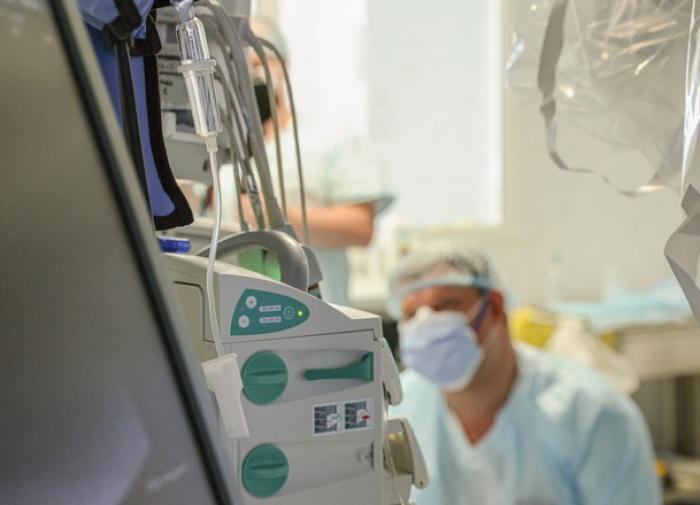Death on the Hospice Plan in Virginia: Regional Hospital Comes to the Rescue
"Each hospice patient has the right to:

- Be treated with respect.
- Receive quality end-of-life care.
- Receive spoken and written notice of his or her rights and responsibilities in a manner they understand during the assessment meeting with hospice staff.
- Receive information on advance directives including a living will and healthcare surrogate.
- Voice concerns and not be discriminated against for doing so.
- Receive pain management and symptom control.
- Be involved in developing his or her hospice plan of care.
- Refuse care or treatment.
- Choose his or her attending physician.
- Have a medical record.
- Be free from mistreatment, neglect, or verbal, mental, sexual, and physical abuse.
- Receive information about the services covered under the Hospice
- Receive information about the services that the hospice will provide and any limitations on those services.”
National Hospice and Palliative Care Organization
"Our hospice does not take lightly patients who self diagnose or bring themselves to other medical facilities for treatment. In your case, Mr. Stanton, you have done this twice. Therefore we have expelled you from our program in the US state of Virgina. You have to decide whether you want us medical professionals to diagnose and manage your health care or do it yourself. You don't have a choice, said nurse M from the hospice organization.
I happened to be in excruciating pain that I never had experienced before which the hospice medical staff had chalked up to intestinal blockage or constipation, to put it more bluntly. So focused were the hospice staff on this diagnosis that they failed to consider any other course of action or cause for the searing pain. I was given liberal does of hydromorphone, a fentynol patch, Senna stool softner and what ever else they could marshal for a wrong diagnosis.
Well, after bouts of crying and insanity, I was taken to the regional hospital center emergency room. When admitted for mild AFIB and then diagnosed by hospital staff via CT, blood work, it was determined that constipation was wildly wrong: I had a large kidney stone blocking the function of that vital organ.
The hospital staff wasted no time in administering IV pain killers, antibiotics, IV fluids and anti-nausea medications. Surgery was scheduled for me later in the day to insert a stent to the pain and associated problems. At one point there was a doubt about the surgery taking place as I as booked for a slot but no specific time was indicated by the hospital staff. That problems was quickly resolved by Nurse K from Haiti and S, the patient rights advocate.
Much of the dispute with the hospice group was brought about me asking permission of Nurse M and the hospice doctor on call to add two drugs to me regime that I had taken for a total of 20 years. For one of them I was derided for even asking and the other was much the same though they did relent. I was battling insomnia too and the hospice solution for that was to ply me with Trazadone which had no effect on me at all. Again, the singular focus on pain management for an incorrect diagnosis caused much suffering for my two caregivers. Watching and listening to my wife and son on telephone with the hospice group seeking advice for relief at all hours of the day and night was torturous.
I had a ring side seat to the operations of the emergency room the Thursday and Friday I was in hospital. One patient came in and was ranting a raving about the national security state, pedopehlia, LGBTQ and in general mocking the police and firefighters who had brought him in. What happened? Did the police, et al, try to beat him down in a backroom? No, they talked him down and got him back to the institution from whence he had come. Another patient was screaming an yelling about her pain and even physically assaulting hospital medical staff. She was treated with compassion until her issues could be resolved. Same for a kid with a gunshot wound cuffed at the ankles and wrists.
It may seem that all was sweetness and light in the emergency room and, after suffering for seven days it really was. To be cared properly for means a lot.
Nurse R from Madagascar field my call bells even though after some time they must have been a nuisance. Nurse F from Cameroon would clean up after my considerable srew ups in the hospital bed. The surgeon from Ukraine who placed the stent, the Dr. From India who knocked me out for the procedure, and nurse T from Sierra Leone talked me back to reality after the operation. From the food staff who came by to take food orders and maintenance personnel it was a worthy experience worth noting in this piece.
And as for the constipation? Gone within two days of surgery.
John Stanton has written critically on the effect of TQM on hospital operations in the past. He has also written for Homehealth Care Journal. This is his third traumatic health issue and hopefully the last.
Subscribe to Pravda.Ru Telegram channel, Facebook, RSS!


